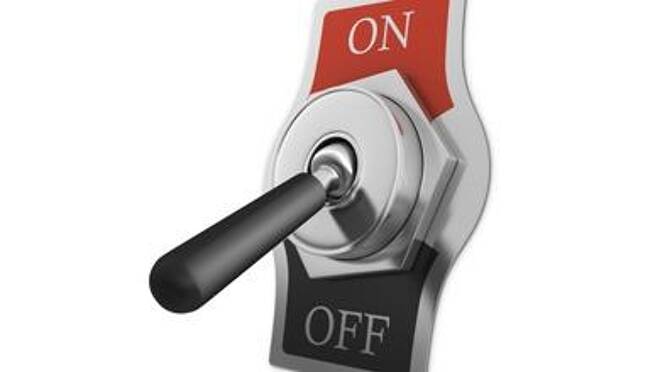Advertisement
Advertisement
Chinese Circuit Breaker Turned Off
By:
Once again on Thursday Chinese markets stuck fear around the globe. The Chinese regulator automatic system shut down trading on Thursday morning after the
Wall Street chopped losses in half on Thursday, but were still down roughly 1% as a trading halt in Chinese shares triggered a broad selloff in global equity markets. A renewed slide in oil prices initially fueled heavy selling, though oil was trimming losses and broke even for the day.
This is the second time this week that China’s newly implemented circuit breakers have crossed over and infected the broader U.S. market. The China Securities Regulator on Thursday said it would suspend its four-day-old circuit-breaker system, saying the mechanism didn’t work out “as expected.”
On Thursday, the S&P 500 fell 20 points, or 1%, to 1,970, with all 10 main sectors trading lower. Technology and financials led the losses. The Dow Jones was down 150 points, or 0.9%, to 16,760, with 27 of its 30 members in negative territory. The CBOE volatility index, also known as Wall Street’s Fear Gauge, jumped 10% to 22.71, above the historical average of 20.
The roller coaster ride in the Chinese financial markets came after the People’s Bank of China allowed the yuan to fall further against the dollar. Chinese stock markets stopped trading after about 30 minutes, making it the shortest trading day ever for Chinese equities.
The market turned to the safe haven yen and gold. The yen is trading at 118 returning to where it traded early in the Asian session before the Chinese craziness but gold was the big winner today soaring $16 to 1107.80. A lot of traders and long term investors just moved out of the markets and put their assets in gold and will most likely sit out the next weeks as the markets readjust. Others just moved to gold as a temporary haven. Asian traders booked profits this morning as gold eased $5 to 1102.80
Other very worrisome matters for the markets this week include North Korea on Wednesday saying it had tested a hydrogen bomb. However, western intelligence sources said the detected blast was not big enough to be an H-Bomb. Still, the world was reminded that North Korea’s rogue regime possesses nuclear weapons despite its isolation. The tensions in the Middle East remain high this week as Iran and Saudi Arabia are in a stare-down after Saudi Arabia executed a cleric who was popular with Iranians.
“Gold’s strength is probably going to be relatively short term, but there is an upside risk to gold, if the view that China is going to pull the whole world into recession becomes stronger,” Citigroup metals strategist David Wilson said.
“But if the US and Europe continue to grow, gold will go weaker … Chinese stock markets had got massively overinflated because a lot of money piled into it and now people have come back to reality.” Palladium, however, which is more exposed to economic weakness because it is used as an auto catalyst metal, slipped to $482 an ounce, its lowest since August 2010. It followed weakness in crude oil and industrial metals.
“What is bad for most of the other commodities is currently good for gold, which is living up to his reputation as a safe haven,” Commerzbank analyst Daniel Briesemann said.
About the Author
Barry Normanauthor
Advertisement
